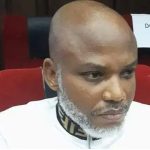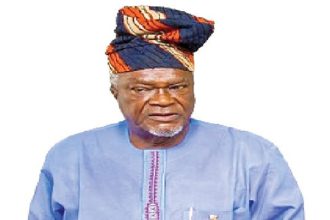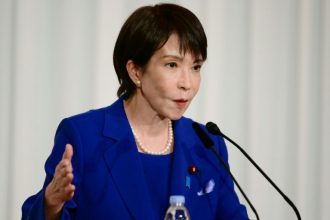TALLAHASSEE, Florida — Florida Gov. Ron DeSantis has become one of the loudest voices calling for states to regulate artificial intelligence. But a possible new executive order from President Donald Trump could suppress his state and others from taking action before any ideas are even unveiled.
A vocal AI skeptic, the GOP governor pledged this summer that Florida would craft “strong policies” on what he contends is the “biggest issue that’s facing our society.”
Just days after DeSantis said Congress banning states from enacting AI policies was “not acceptable,” however, POLITICO reported that that White House is preparing for a sweeping move that would block states from creating their own artificial intelligence rules.
“Whoever’s saying how great it’s going to be, there’s going to be big pitfalls, too. I mean, at best, right?” DeSantis said of AI Thursday during at the Florida Rural Economic Development Summit. “And you end up in this situation where people don’t even know what’s real.”
A Trump order could come as soon as Friday, creating new federal measures to preempt state leaders from crafting their own AI regulations. The action would arrive at a critical time, with debate simmering over who should set AI policy in the U.S. The tech industry and its Republican supporters want federal oversight, arguing state AI laws could ultimately create a conflicting “patchwork” that slows innovation.
To that end, Trump is proposing to squash local AI regulations by targeting any state laws governing the issue. That could mean government lawyers pursuing legal action against states for unconstitutionally regulating interstate commerce that should be preempted by federal regulations.
This could put a serious damper on possible AI restraints in Florida, where DeSantis and lawmakers have been eyeing policy changes for months.
When House Republicans mulled a state AI moratorium this week, DeSantis slammed the proposal, claiming it “constitutes federal government overreach and lets technology companies run wild.”
“Stripping states of jurisdiction to regulate AI is a subsidy to Big Tech and will prevent states from protecting against online censorship of political speech, predatory applications that target children, violations of intellectual property rights and data center intrusions on power/water resources,” DeSantis posted on social media Tuesday.
Florida House leaders, meanwhile, scheduled an AI week in December to steer lawmakers toward discussing the issue and how it effects realms like education and health care. State House Speaker Daniel Perez warned House members that “as we’ve seen with social media, short-term legislative choices can have serious long-term consequences.”
“We all recognize that AI may open new economic vistas,” Perez, a Miami Republican, wrote in a memo Tuesday. “At the same time, we see stories about how AI can be abused, have adverse effects on education, or harm emotionally vulnerable users.”
While DeSantis has yet to comment publicly on Trump’s potential AI order, the GOP governor did note on social media Thursday morning that some criticisms of the proposal were raising “good questions.”
During his remarks at the economic summit, DeSantis reiterated his long-standing concern that AI could replace workers and trigger economic upheaval.
“It’s one of the reasons why I don’t think we should be subsidizing it,” DeSantis said. “Why would we subsidize something that could potentially cause problems for folks?”
Gary Fineout contributed to this report.









